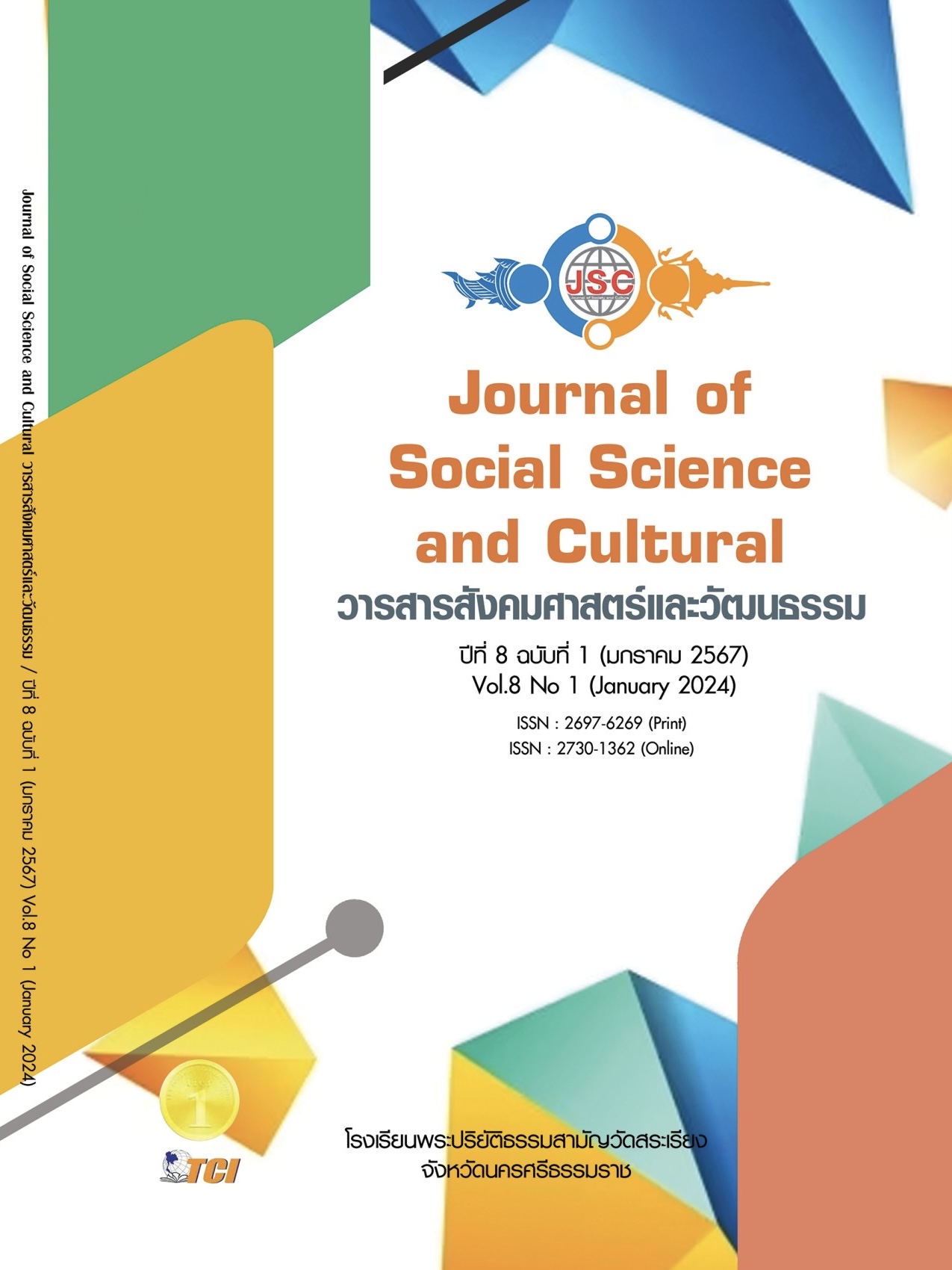TREND AND FACTOR AFFECTING BUSINESS IN THE NEW NORMAL
Main Article Content
Abstract
This article aims to 1) study trends affecting business in the new normal era, divided into 3 groups: 1.1) The growth segment is a group with high growth opportunities, therefore, it has to accelerate the opportunity to seize the opportunity because it is a business that meets the needs of consumers in the area of medicine and technology. 1.2) Steady groups or groups with good and bad mixes in the target industries of the country, such as food and beverage, energy, electronic and electrical appliances, machinery and tourism, and 1.3) The vigilance group faces high challenges, reducing unnecessary costs and leveraging technology to pursue new opportunities is a key strategy. Especially businesses that are based on international markets, both in terms of demand and prices in the world market, including those that are pressured by high debt burdens in both the debt of the business and target customers such as textiles, leather, jewelry, automobiles, metal, packaging, business transport, Real estate and agriculture 2) Study the factors that affect the business in the new normal period, divided into 5 factors: 2.1) debt, 2.2) De-globalization, 2.3) government sector, 2.4) health trends, and 2.5) digital technology, which 2.1-2.4 will be the driving force and 2.5 will be the key of business. COVID-19 outbreak it’s not only affects the broader economy but it will also leave traces ready to change our old world to a new normal, where Thailand is about to encounter at least two factors blocking its growth: Debt problems and De-globalization.
Article Details
References
ธนาคารกรุงไทย. (2564). “ลำดับขั้นตอนการเข้าสู่ยุคปกติใหม่”. เรียกใช้เมื่อ 20 กุมภาพันธ์ 2564 จาก https:// krungthai.com/th/krungthai-update/news-detail/626/
International Monetary Fund. (2020). “Corporate debt to GDP ratio (%)”. Retrieved February 20, 2021, from https://www.imf.org/en/Search#q=GDP&sort=relevancy/
Our world in data. (2021). “The number of new infections is declining in many countries”. Retrieved February 20, 2021, from https://ourworldindata.org/
Oxford Economics. (2020). “GDP Thai”. Retrieved February 20, 2021, from https:// www.oxfordeconomics.com/
S&P Global rating. (2021a). “The economy could return in a U-shaped manner”. Retrieved February 20, 2021, from https://www.spglobal.com/en/researchinsights/featured/economic-implications-of-S&P coronavirus/
Smart SME. (2563). “เจาะแนวโน้ม 3 กลุ่มธุรกิจยุค New Normal กลุ่มเติบโต-ทรงตัว-เฝ้าระวัง”. Retrieved กุมภาพันธ์ 20 , 2564, from https://smartsme.co.th/content/240920
UNCTAD. (2021). “De-Globalization”. Retrieved February 20, 2021, from https://unctad.org/about/organization/division-globalization-and-development-strategies/
US Department of Labor. (2019). “Proportion of annual income after taxes to household debt (%) in OECD”. Retrieved February 20, 2021, from https:// www.dol.gov/general/topic/labor-relations/
YPO. (2021). “The economy could return in a U-shaped manner”. Retrieved February 20, 2021, from https://www.ypo.org/who-is-ypo/


